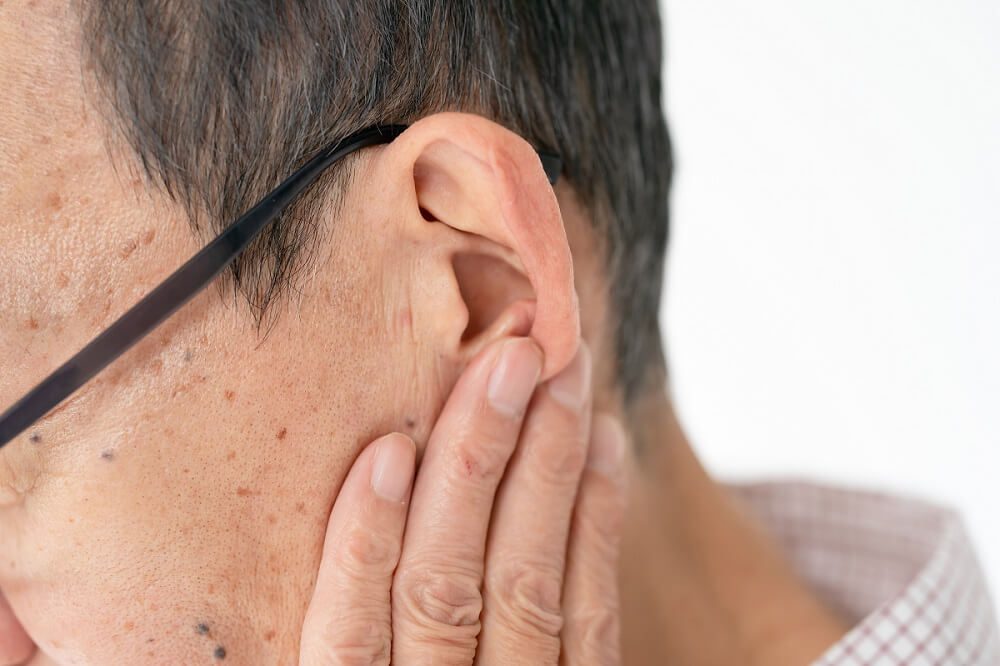Your Earwax Removal Experts in Ontario
Most of us look at cleaning the earwax from our ears as a part of practicing good hygiene, but it also helps you hear better and can improve the performance of your hearing aids. What we don’t realize is that it is necessary to maintain a delicate balance between having enough earwax and having too much.
A natural substance produced by glands in your ear, cerumen, or earwax, is nature’s way of moisturizing, cleaning and fighting off infection. Earwax traps foreign debris, which works its way toward the outer ear while you chew or talk where it falls out on its own. However, too much of it or earwax that has become impacted can produce negative hearing health consequences.
The aching, irritation, stuffiness, muffled hearing and other symptoms of impacted earwax drive most to find relief and ask the question, “Does anyone provide professional earwax removal near me?”
Fortunately, earwax removal is among the hearing care services offered at all of the 18+ Hometown Hearing Centres throughout Southern Ontario.

Symptoms of Earwax Buildup
The signs and symptoms of impacted earwax or an earwax blockage typically include:
- Earaches
- Stuffiness or fullness in the ear
- Ringing in the ear (tinnitus)
- Muffled hearing or hearing loss
- Dizziness
- Coughing
- Itchiness and irritation in the ear
- Odour or discharge from the ear
- Pain or infection in the ear

Earwax and Hearing Aids
Earwax buildup is a problem for everyone, but it is particularly challenging for those who use hearing aids. In addition to causing damage to your hearing aids, causing the device to no longer fit and even exacerbating existing hearing loss, earwax buildup tends to occur more often in those who wear hearing aids.
Hearing Aids Cause Earwax Issues
If you wear hearing aids, you’re more likely to have an earwax buildup at some point. Beside the fact that hearing aid wearing tends to stimulate cerumen production in the ear canal, hearing aid earmolds tend to stop the wax from naturally clearing out of your ears.
Solution:
Trying to clean out earwax by using cotton swabs or other small objects can be very dangerous, leading to impacted earwax as well as damage to the ear canal and/or eardrum. Leave earwax removal to your hearing care professional who can also suggest or prescribe formulas to control excessive earwax production.
Earwax Causes Hearing Aid Problems
Earwax buildup blocks the processed sound from your hearing aids to your ears, limiting their benefit. However, built-up earwax can also get into the receiver or speaker of your hearing aid, blocking the sound waves, which causes the uncomfortable high-pitched noise known as feedback.
When earwax builds up inside the vents, receivers and microphones of hearing aids, it prevents them from working properly. Additionally, the moisture in earwax can get to the inner electronics of the device, causing it to short or malfunction, or into the battery compartment where it will corrode the battery and battery leads.
Solution:
As many as 60%-70% of all hearing aids sent in for repairs are damaged by the buildup of earwax or other organic materials. Cleaning your hearing aids daily helps prevent malfunctions, performance issues and damage. Most hearing aids also come with wax guards or filters that need to be replaced periodically to help protect against earwax accumulating inside your device.
Frequently Asked Questions about Earwax Removal
What Is Earwax?
What Causes Earwax Buildup and Impacted Earwax?
When Should I Seek Help for Earwax Removal?
Is Earwax Removal Painful?
Does Earwax Removal Help Hearing?
Tips for In-Home Earwax Removal
Better ear health and hygiene involves maintaining a proper balance of earwax. To help improve ear health, avoid:
- Digging inside your ears with cotton swabs or any other long, thin device (we shudder when we think of what that could be) because it can cause more harm than good.
- Not all OTC earwax removal formulas are properly formulated to provide safe and effective earwax removal or for maintaining the right pH or the proper balance of necessary earwax production.
If you can’t get to one of Hometown Hearing’s right away, and need instant relief from impacted earwax at home, follow these steps:
- Place 2-3 drops of mineral or olive oil in one ear.
- Lie sideways for approximately five minutes to allow for the oil to “sit and soak.”
- Wipe any excess oil from the outside of your ear with a soft cloth.
- Repeat on your other ear.
- Continue this treatment for 3-4 days.

Safe In-Office Earwax Removal
Our primary method for safely removing earwax in our clinics is with a curette, this method draws out impacted and stubborn earwax.
We also use irrigation where warm water helps to soften the wax and then we gently flush it from your ear canal.
Please keep in mind that our vantage point and special training make these methods safe and you shouldn’t try it at home.
If you have issues with excessive earwax production, especially if you wear hearing aids, our earwax removal experts have access to earwax removal formulas with carbamide peroxide, which we sometimes use with irrigation to break up stubborn buildup, and we can help suggest or prescribe products with the right pH balance and formulation for you to use at home.
Contact Us for Safe and Effective Earwax Removal
To ensure better ear health as well as safer and more effective earwax removal and control of excessive earwax production, contact the Hometown Hearing Centre nearest you.
Just complete and submit the adjacent form and we will call you back to set up an appointment to evaluate and safely remove built-up earwax.
Don’t want to wait? Call us today.
